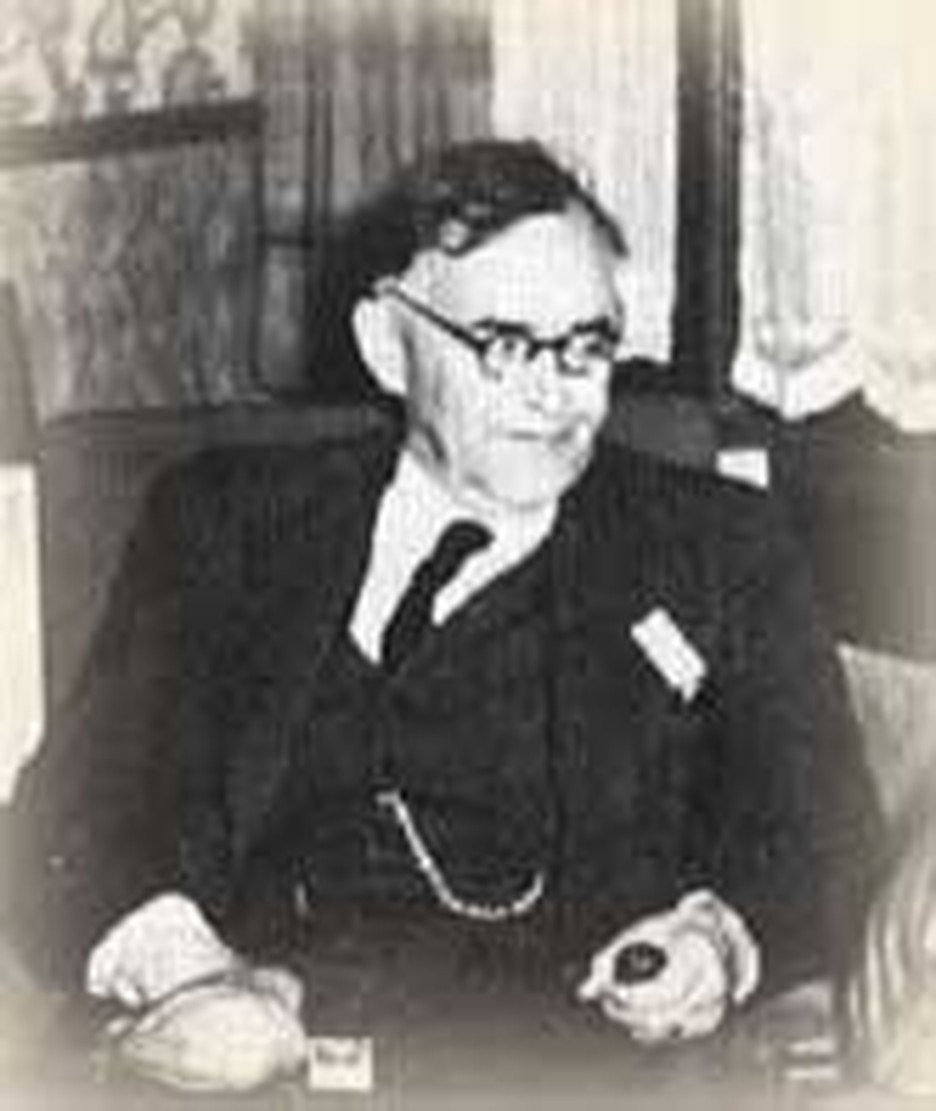
On this day Monday morning, May 10, 1886, at about five o'clock Anna Katherina Sartorius Barth delivered a son. It was a hard delivery, and the child was ugly. "Karli," as his parents affectionately called him, was born at home--42 Grellingerstrasse in Basle, with just an aunt attending. Although both parents were born and raised in Basle, they had only recently returned to the city when Karl's father, Johann Friedrich Barth was offered a pastorate. He was an earnest, outspoken preacher much respected by his congregation. His son would become one of the best-known theologians of the 20th century.
After a happy childhood in Basle and Bern, Karl Barth attended the Universities of Bern, Berlin, Tübingen, and Marburg. Beginning in 1909 he pastored for many years; and even after he had become a famed professor at the universities of Göttingen, Münster and Bonn, he held that the essential task of theology was preaching. His theology, he said, grew out of his first pastorate in Safenwil, where he carefully crafted his sermons each week. At that time he was a liberal who even went so far as to publicly praise Schleiermacher and made speeches for the Religious Socialists.
Barth's first important work was his study on the Epistle of Romans. His friend Thurneysen had said to him, "What we need for preaching, instruction and pastoral care is a 'wholly other' theological foundation." For some reason the words stuck in Barth's mind. Although he had usually focused his sermons around a scripture, for the first time, according to his own words, he really became aware of the Bible.
Barth gradually came to repudiate liberal theology. Unlike many religious thinkers of the 20th century, who synthesized Christianity with other beliefs, he refused any "insights" borrowed from world religions, averring that religions are man's attempt to reach God, whereas Christianity is God's reaching down to humans through Christ Jesus. Christianity is not man's discovery but God's revelation. This is no merely intellectual revelation and certainly not a "direct" revelation.
"The revelation which has taken place in Christ is not the communication of a formula about the world, the possession of which enables one to be at rest, but the power of God which sets us in motion, the creation of a new cosmos."
Originally he wrote the book only for himself and his close circle of friends. The first printing consisted of only 1,000 copies which sold with difficulty.
Later Barth wrote Church Dogmatics and other theological works. These have been strongly criticized as cutting theology loose from historical actuality. Perhaps his most practical contribution was the Barmen Declaration, which called Christians back to the historical truths of their faith at a time when Hitler loyalists within the national church were warping the faith into a parody that applauded the regime and allowed Hitler to dictate in matters of religion. When Barth refused to cooperate with the Nazi regime, he was expelled from his professorship at Bonn.
Bibliography:
- Andrews, James F., Editor. Barth. St. Louis, Missouri: B. Herder Book Co., ca. 1969.
- Barth, Karl. The Epistle to the Romans. London: Oxford university press, H. Milford, 1957.
- "Barth, Karl." The Oxford Dictionary of the Christian Church. Edited by F. L. Cross and E. A. Livingstone. Oxford: OXford University Press, 1997.
- Curtis, Ken et al. Dates with Destiny; the 100 most important dates in church history. Tarrytown, New Jersey: Fleming Revell, 1971, 1946.
- Torrance, Thomas Forsyth. Karl Barth, biblical and evangelical theologian. Edinburgh: T & T Clark, 1990.
- Van Til, Cornelius. Christianity and Barthianism. Philadelphia, Pennsylvania: Presbyterian and Reformed Publishing Co., 1962.
Last updated April, 2007.







